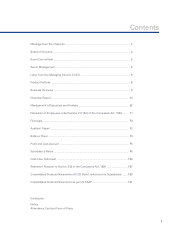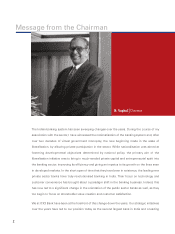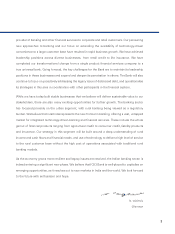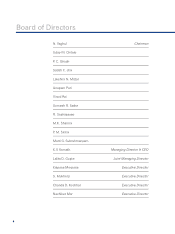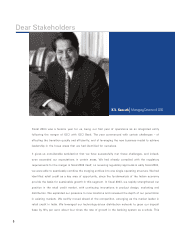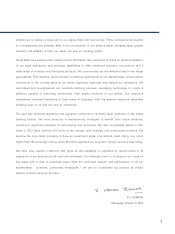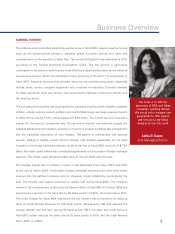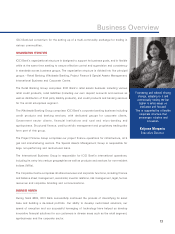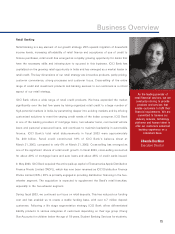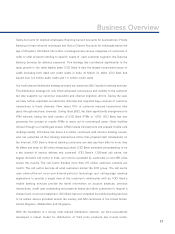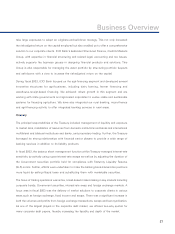ICICI Bank 2003 Annual Report Download - page 13
Download and view the complete annual report
Please find page 13 of the 2003 ICICI Bank annual report below. You can navigate through the pages in the report by either clicking on the pages listed below, or by using the keyword search tool below to find specific information within the annual report.
11
Business Overview
Despite the fact that it was a subdued year for equity capital markets, the National Stock
Exchange (NSE) and the Stock Exchange, Mumbai (BSE) ranked third and sixth respectively
in the world with respect to number of transactions. The year also witnessed important
structural changes in the capital markets. The equity markets have now absorbed a new
market design, with rolling settlement and equity derivatives trading. The Unit Trust of India
(UTI) Act was repealed to restructure UTI into UTI-1 and UTI-2. The Union Budget for fiscal
2004 has provided a favourable tax regime for equity capital markets. The Union Budget has
also proposed a separation of ownership and management of stock exchanges. In January
2003, Government bonds started trading on the exchanges.
The Indian economy has displayed considerable strength and resilience, and the prospects
for sustained growth are favourable.
FINANCIAL SECTOR OVERVIEW
The process of financial sector reforms that began a decade ago received further momentum
in fiscal 2003. The reforms were aimed at improving the asset resolution and recovery
environment, strengthening the regulatory mechanism and increasing operational efficiency.
The enactment of the Securitisation and Reconstruction of Financial Assets and Enforcement
of Security Interest (SARFAESI) Act significantly strengthened the ability of lenders to enforce
their security for recovery of dues from borrowers. The Act also created an enabling legal
framework for asset reconstruction companies and for securitisation in general. ICICI Bank
and other banks and institutions have taken the initiative to incorporate Asset Reconstruction
Company (India) Limited (ARCIL) in order to give impetus to the resolution of distressed
assets in the Indian financial system.
As a step towards strengthening the supervisory mechanism, RBI is undertaking risk-based
supervision of banks on a pilot basis. RBI is also examining the impact of the new Basel
capital accord on the Indian banking system. The Union Budget has raised the Foreign Direct
Investment (FDI) limit in private sector banks to 74.0%. This would facilitate the setting up
of subsidiaries by foreign banks as well as foreign investment in private sector banks.
In the securities market, the emphasis during the year was on strengthening the regulatory
framework and undertaking structural reforms that seek to foster liquidity and market
efficiency. Furthermore, with a view to investigate frauds in the stock market it was decided
to set up a Securities Fraud Office (SFO) with a multidisciplinary team of experts, in the
Department of Company Affairs. The year also saw the grant of approval to an
Our focus is to facilitate the
restructuring and streamlining
of corporate India with an aim
to organise and consolidate the
sector. We will aid this
process by supporting viable
industrial and infrastructure
projects and reinforce the
uptrend in the Indian economy.
S. Mukherji
Executive Director


